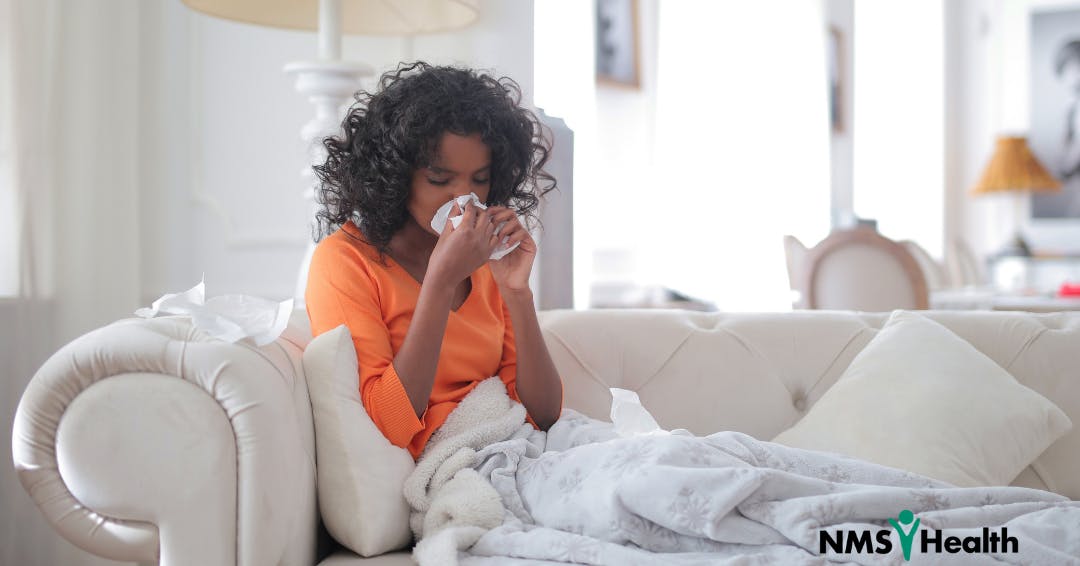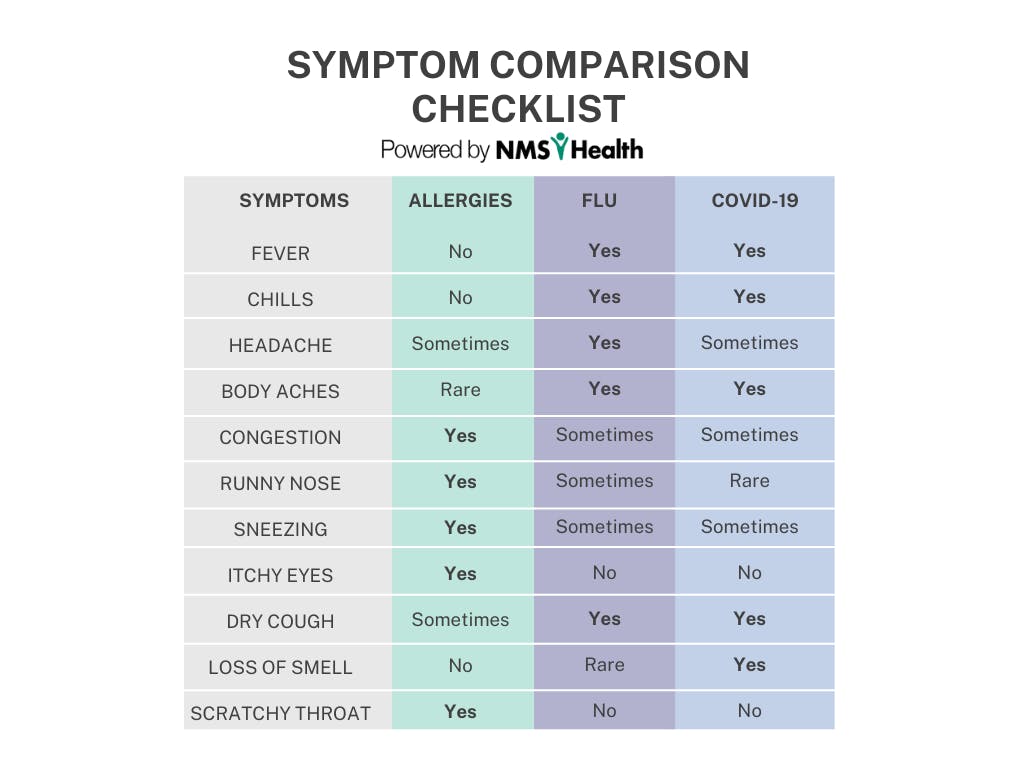For many people. coughing and sneezing in public may cause anxiety after living through two years of a global pandemic. Every tickle in the back of the throat can leave you wondering if you have COVID-19, but it is not the only thing that causes upper respiratory symptoms. As we head into Spring, you may begin to wonder – Is it allergies, the flu, or COVID-19?
Seasonal Allergies
According to the Centers for Disease Control and Prevention, as many as 60 million people per year in the U.S. experience symptoms of allergic rhinitis, also known as hay fever. Hay fever is caused by allergens, such as pollen, enter the body and the immune system mistakenly identifies it as a threat. This can result in respiratory symptoms. Pollen exposure can also cause allergic conjunctivitis, an inflammation of the lining of the eye. This is found in up to 30% of the population and in 7 out of every 10 patients that have allergic rhinitis.
Allergy Symptoms
- Sneezing
- Runny or congested nose
- Red, itchy, or watery eyes
- Itchy nose or ears
- Mild sore throat
- Mild fatigue
Flu vs COVID-19
Both the flu and COVID-19 are caused by viral infection. Flu is caused by the influenza virus and COVID-19 is caused by SARS-CoV-2. It can be hard to distinguish them from each other due to the similarity of some of the symptoms. Both viruses can cause fever, cough, and body aches. Additionally, they are both spread similarly as well, through infected respiratory droplets made when coughing, sneezing, or talking. Many times, influenza and COVID are spread to others before a person even begins to exhibit symptoms. With cases of COVID, symptoms may take longer to appear after the initial infection when compared to the timeline for flu symptoms. Someone with the flu will begin to experience symptoms 1 to 4 days after being infected while someone infected with COVID will usually have symptoms on day 5. Cases have shown that it can take up to 14 days to show COVID symptoms.
Another concern with COVID-19 symptoms is that they tend to change as the virus mutates and those who have breakthrough infection after being vaccinated, may experience different symptoms then those who have not been vaccinated. While runny noses and headaches weren’t typically considered COVID symptoms, the are now starting to become more common as omicron specific symptoms. One of the tell-tale symptoms of COVID infection continues to be loss of smell.
Flu Symptoms
- Fever
- Chills
- Dry cough
- Body aches
- Headache
General COVID Symptoms
- Fever
- Dry cough
- Shortness of breath
- Intense fatigue
- Body aches
- Loss of smell
Common Omicron Specific COVID-19 Symptoms
- Runny nose
- Headache
- Fatigue
- Sneezing
- Sore throat
Five ways to determine if your symptoms are allergy or viral related
1. Symptom timeline
If you have a history of falling ill every spring, more than likely you could be a chronic allergy sufferer. Additionally, symptoms of allergies tend to be more long-lasting and could persist for multiple weeks. Viral symptoms typically last for a shorter amount of time.
2. Treatment
If you experience relief from over-the-counter allergy medications, it is likely that you do not have a viral infection.
3. Itchiness
Itchiness of the eyes, nose, and throat is not a symptom of viral illnesses. If you are experiencing these symptoms, it is very likely that you have allergies.
4. Fever
It is not typical to develop a fever from allergies. Those with viral infections such as the flu and COVID often do experience a fever in conjunction with other symptoms.
5. Testing
The easiest way to tell if you have a viral infection is to get tested. There are rapid tests for both the flu and COVID-19 viruses. To learn more about rapid COVID testing, please visit our blog.
When in doubt a healthcare professional can assist you in diagnosing and treating whatever is causing respiratory symptoms. The best way to prevent getting ill with COVID-19 or the flu is to stay up to date with your vaccinations. This includes getting an annual flu vaccine, as well as the initial vaccine and required boosters for COVID-19.



